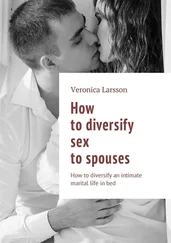She was born in New Jersey in 1941, and if you want a comparison for her in her younger years, think Grace Kelly in High Society, the archetypal elegant and cool American East Coast blonde. For a later comparison, the actress Lee Remick will do. In the years when I pined hopelessly for her and she relished my company only in my fertile imagination, I contented myself by putting her alongside Grace and Lee, my trio of American blondes, all utterly lovely and utterly unattainable. Don’t be too hard on me; a man is allowed his fantasy.
So the fact that she is beautiful is incontrovertible. It is simply a fact. A cursory glance at some of the photographs in this book will be enough to convince any doubter, but if you demand further proof, then brace yourself for this: by the time she was 20 years of age Bonnie was four times beauty queen. Not once, twice, or even three times, but four times. At each school she attended she was voted beauty queen and, most prestigious of all, at Cornell University she was crowned Homecoming Queen.
In case you should form the wrong opinion, I would like to stress that in not a single case did she put herself forward for these contests. In the early years it was a combination of school and parents, and at Cornell it was the students themselves who chose her. Not much upsets my Bonnie, but in years gone by if ever I wanted to make her just that tiny little bit fractious, I would remind her she was four times beauty queen. ‘No, stop that,’ she would say, ‘you’re embarrassing me.’ I would gently josh her, force that radiant smile to emerge, then hug her till it hurt.
In her final year at Cornell, she and a small group of female friends came to Europe to explore the Old World. The young men of Italy, Spain, France, thought all their Christmases had come at once—I know so because she told me that one day one of the other women said to her, ‘If you get another one tonight, could you pass him on to me’. But Bonnie left them to nurse damaged hearts—except in England, where one persistent suitor was ultimately to be rewarded. She went back to Cornell, but after graduation Bonnie returned to London and married her Englishman.
She later told me that from the day she set foot in England she felt as if she was returning home. Everything about the old country appealed to her, and she knew immediately she would make it her home. As I write this, she has lived in the UK for more than 40 years.
You don’t need to know much about me, so I will keep it brief. I was born in central London in 1944, the eldest son of a much-respected gynaecologist and obstetrician. Today I live with Bonnie in the same block of flats in which I spent the first 10 years of my life (two doors away on the same floor).
My school career was remarkable for its ordinariness. I made a lot of noise and achieved very little. At prep school I was caned relentlessly, along with my brother David, by a sadistic headmaster. At public school I was punished by a narrow-minded music director for playing jazz on school premises. I was relatively good at modern languages—French, German, Russian—and taught myself to play trombone to quite a high standard (which led to the offending jazz session). I managed to fail or achieve only mediocre passes in all exams, even in my stronger subjects, but a fortunate phone call at the right moment to the right faculty earned me a place at university. It was in Dundee, which shocked my parents, and we had to look at Dad’s AA road map of the UK to find out where it was. Four years later I was a Master of Arts (with Honours) but, more importantly, I had secured a position as graduate trainee with Reuters news agency in Fleet Street, London.
I will not bore on about exactly how I achieved that, other than to say that it was a combination of a certain ease in writing a news story, combined with a shameless exaggeration of my linguistic skills, which at interview were never put to the test. Just recently, around 40 years on, I was host at a social event in the City of London, at which the two former Reuters executives (long since retired) who had interviewed me were present. In my speech I finally confessed to them that had they tested my claims as a linguist, I would have been on the next train north. There was much laughter, and a few good-natured boos.
The start to my Reuters career was stellar. Eight months after joining—a year since my graduation—I was on the streets of Paris, covering the student riots of 1968, which ultimately led to the downfall of President de Gaulle. But, true to form, I then proceeded to make a mess of things by turning down the opportunity to become bureau chief in Congo Brazzaville. (It was a startling promotion, but my then wife insisted we needed to stay in the UK to look for a house and take out a mortgage. So I turned down Brazzaville, knowing I was making the first major mistake of my fledgling journalistic career.) I resigned, failed to find another job, then a fortunate phone call to the right person at the right time landed me a lowly job in BBC television news, writing the football results and weather forecasts. I managed to do even that quite badly, and after a year-and-a-half left for ITN, telling the BBC I would be back in a year. I stayed at ITN for the rest of my career. In 2008 the Royal Television Society presented me with a Lifetime Achievement Award, its highest accolade. I don’t know why—I’m convinced they got the wrong person—and when I look at the very smart gold and engraved glass award sitting on my grandparents’ glass-fronted cabinet, I regularly say to Bonnie that when they realise their mistake it’ll be too late, they’re not getting it back.
Back at the beginning of 1970, with my career in tatters, my first wife Moya and I moved into a Victorian cottage at the end of a cul-de-sac in leafy Henley-on-Thames and I took on a crippling mortgage. The house was cold and damp and parts of it were at risk of falling down. It needed a lot of work, and I had never held a drill in my life. A small slope went up into woods opposite our house. Three new houses had been built on it, red brick, boxlike, unattractive. In the summer of 1970, Bonnie and her husband moved into the house at the top of the slope.
I am writing this at the large oak dining table in the old farmhouse Bonnie and I bought 20 years ago in Gascony in south-west France. Bonnie is walking slowly around the house. It’s what she does now. She can’t settle. She stands at the kitchen door, squinting at the brightness outside. She walks the length of the kitchen, then into the sitting room, which we call the séjour, where I am writing. Hello darling, I say, I am writing about you. Good, she says, without questioning me any further. On the table is a large brown envelope with my name on it. Inside are sample chapters of a forthcoming book in which carers tell their stories of caring for a loved one with dementia. The author has asked me to write a short paragraph endorsing the book. Bonnie picks up the envelope, but I am not worried she will open it or even ask what is in it. Have you seen this, she asks?
Yes, I say, affecting a slight weariness in my voice. It’s from a charity I am doing some work for. They want me to read it and give my comments. Lot of stuff to get through. She smiles and puts it down, and walks back to the kitchen, where she stands at the door and squints her eyes again at the brightness outside.
I haven’t lied to her, I have told her something which is very close to the truth and which I know she will be comfortable with. I am getting better at entering her world and only saying things I know she will comprehend. I mustn’t try to take her outside her world. The tragedy is that that world is slowly shrinking, so something she may grasp today may elude her tomorrow. I have to be on the lookout for that.
Читать дальше












